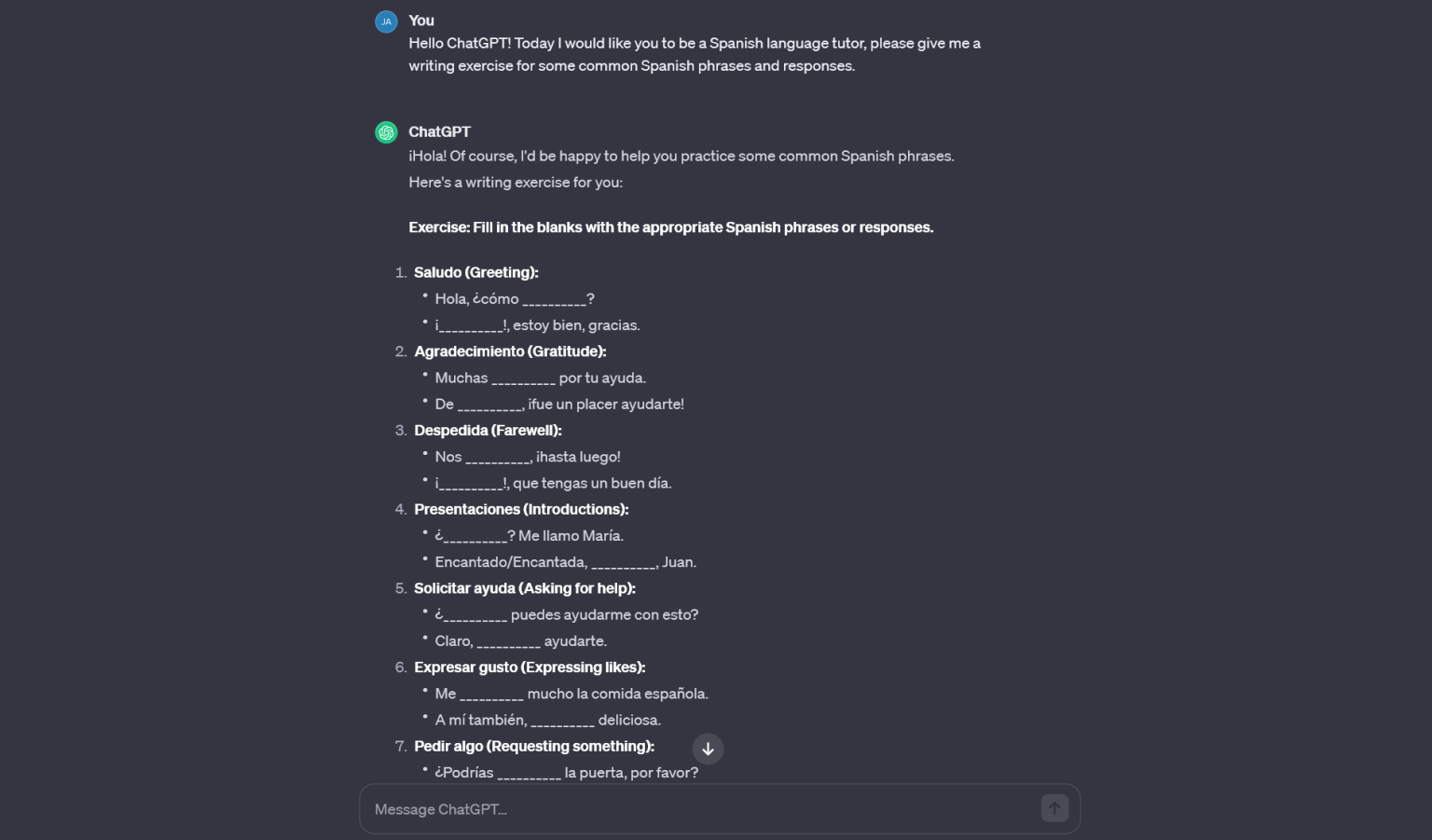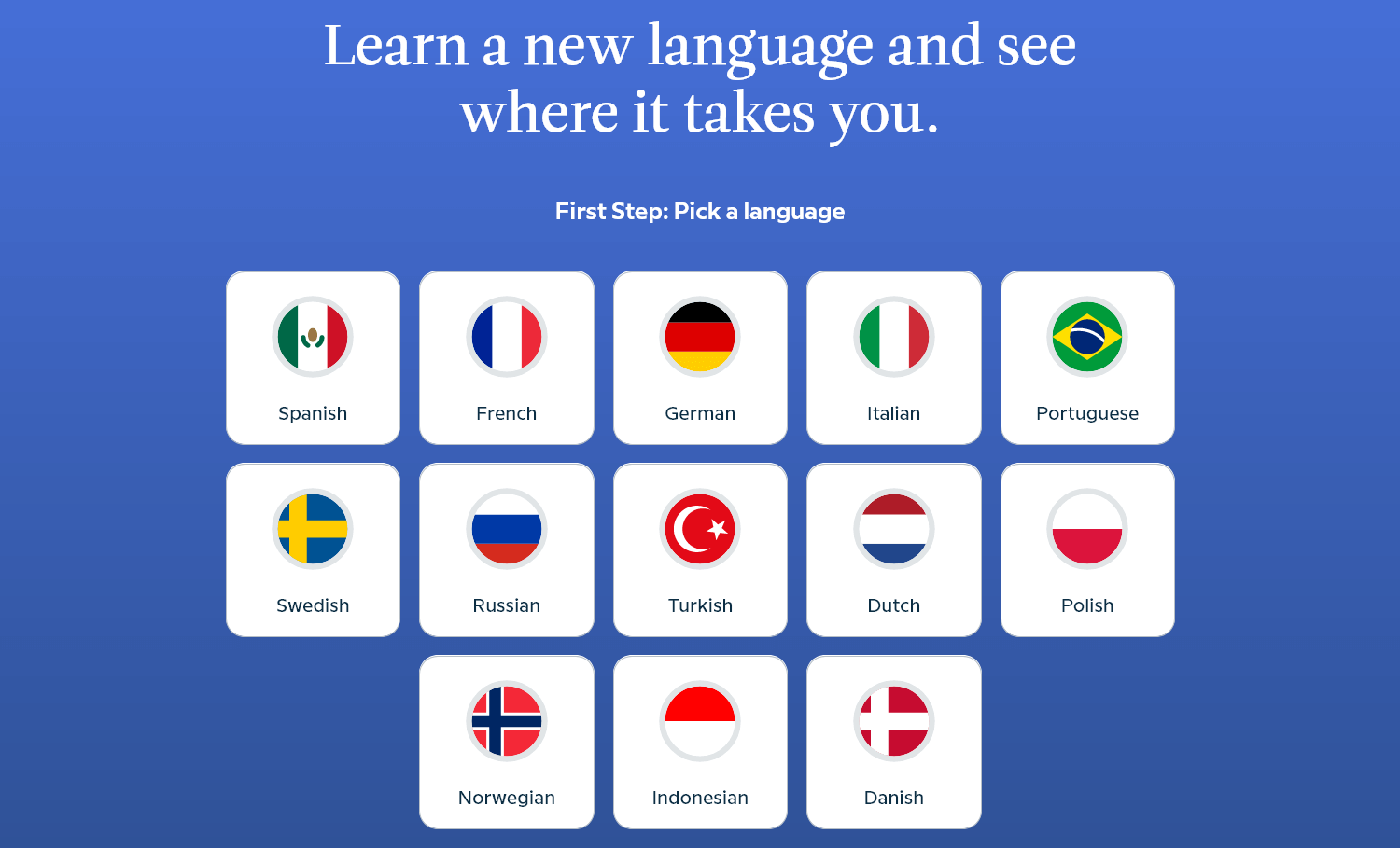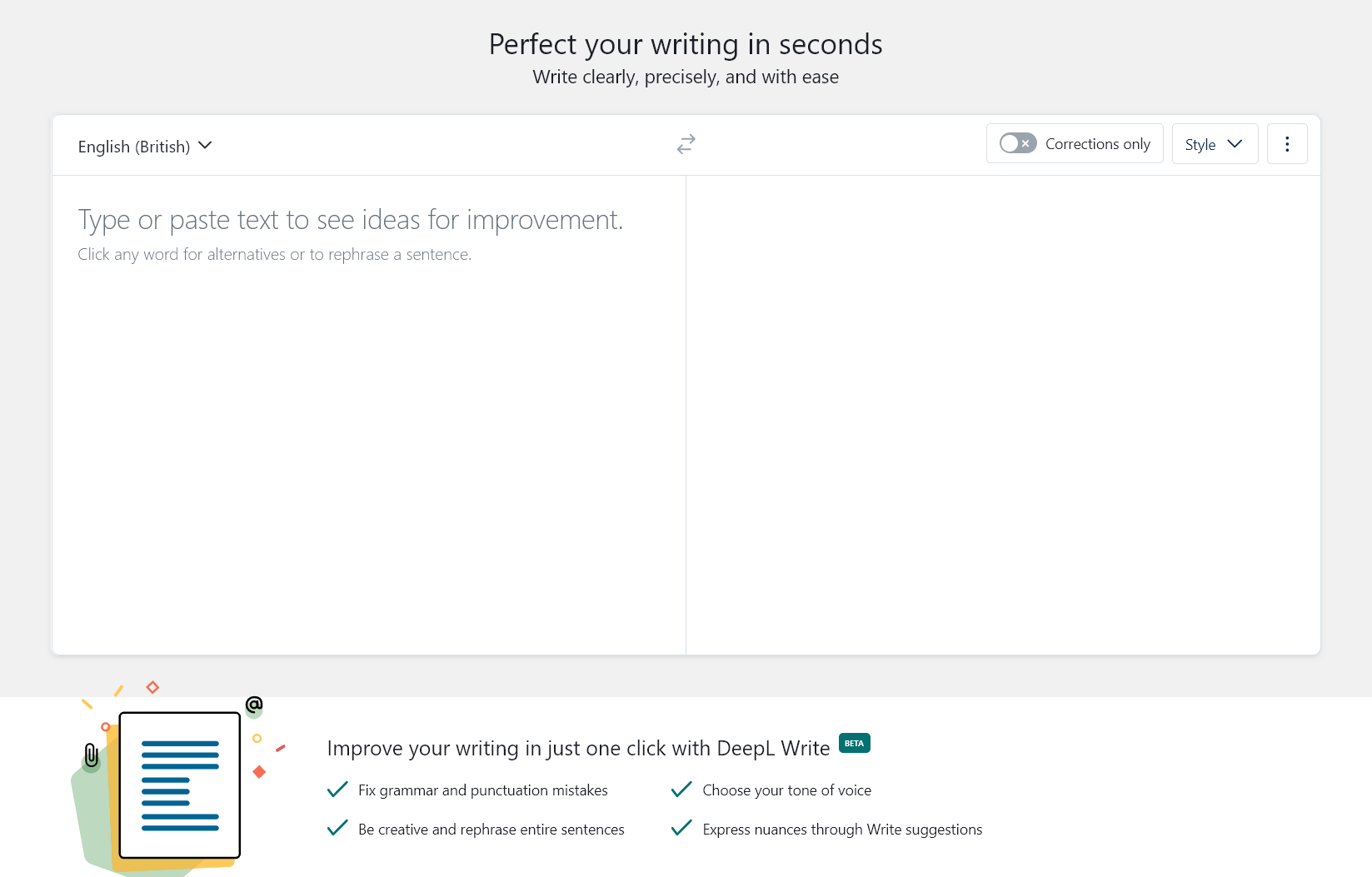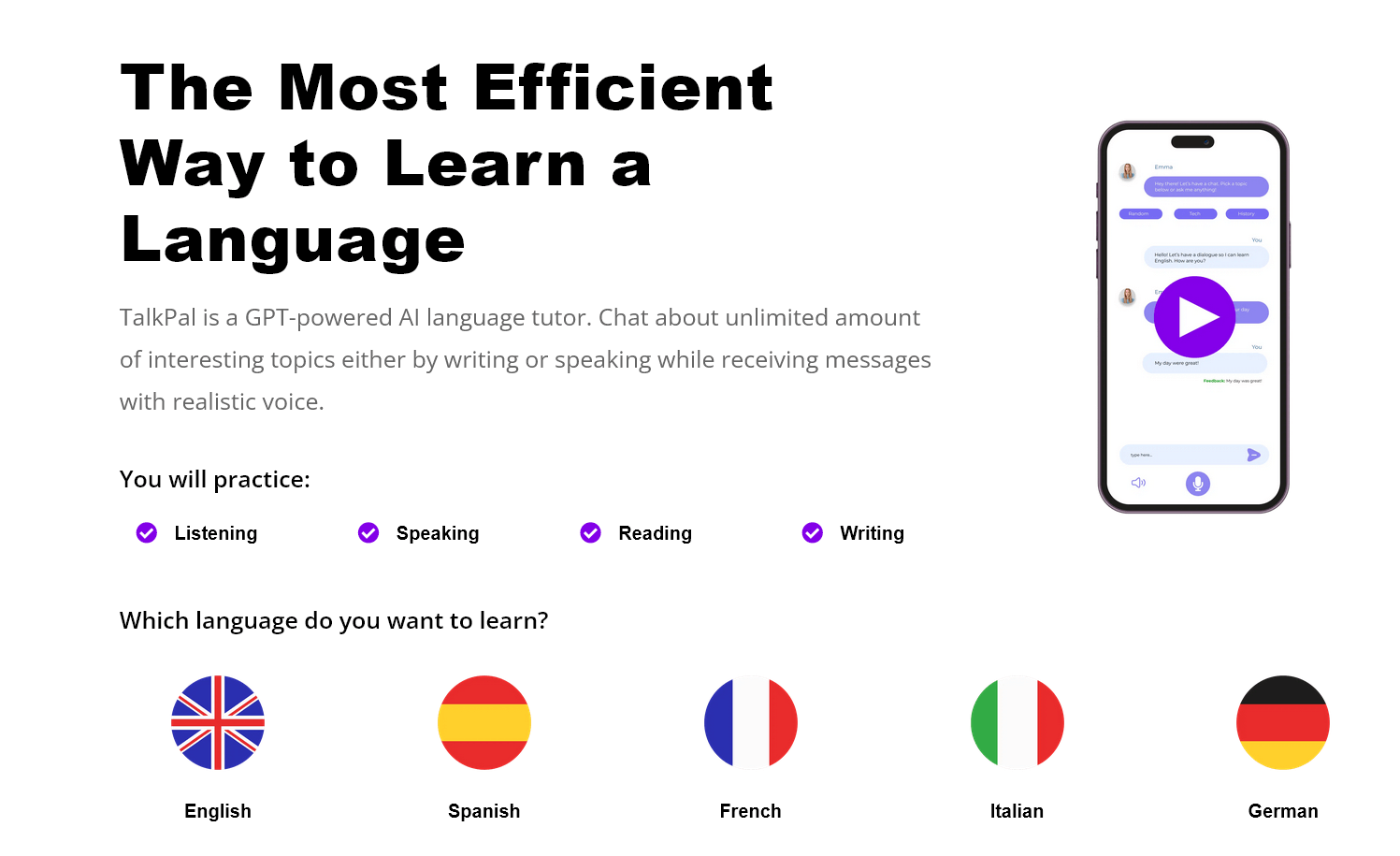
Learning a new language can be difficult and frustrating at times, but AI-powered language learning tools are making it easier than ever. With so many options available though, how do you choose the right one? In this post we’ll analyzes some of the top AI language learning tools and apps on the market to help you find the perfect fit.
Choosing the Best AI Language App For You
It’s worth pointing out that many of these AI language learning tools utilize different methods when it comes to learning languages. For this reason, we think it’s important that you choose the right app for your needs. This can vary depending on many factors, such as your skill level and which languages you’re looking to learn. Here are some of our tips to help you to choose the right app.
Languages Supported
First, ensure the tool supports learning the language you want to focus on. Some apps specialize in certain languages like English or Spanish, while others offer a wider range. Check if less common languages like Dutch, Korean, Farsi or Swedish are available, if you’re going to be learning those. If you’re mainly trying to learn English, you may wish to go for a tool which focuses on English only.
Accessibility and Compatibility
Consider how easy it is to access and use the app. Many provide both desktop and mobile versions for flexibility. Others are mobile-based so having a compatible device is essential. Some AI tools also integrate with platforms like WhatsApp or Telegram for chatting and conversational exercises.
Cost
Pricing models of most AI language learning apps range from free basic versions to monthly/yearly subscriptions unlocking all features. Factor in your budget and determine if free content would sufficiently support your needs or paid plans provide more personalized guidance. Many apps offer free trials too! Some will also give free access to the easier learning segments, with the advanced levels requiring a payment or subscription.
Learning Approach
Think about how you learn best. If you prefer game-style exercises, A flashcard style app like Clozemaster is ideal. For writing help, tools like DeepL Write are perfect for validating your writing skills and helping with things like grammar and punctuation. If you prefer one-on-one conversations, Claude and other chatbots could be a good place to start. Aligning the app to your learning style pays off in the long run.
AI Tools for Language Learning
ChatGPT / Bard / Claude
You may find it surprising, but conversational AI tools like ChatGPT, Bard, Claude, and even Bing are useful for getting instant feedback as you practice speaking and writing in another language. The way this works is you simply ask the AI chatbot to be your language tutor – just tell the AI which language you’re trying to learn and then practice any conversation you like.
Remember that since it’s a chatbot, you can have natural conversations, ask questions, get explanations of grammar rules, and more. Some chatbots such as ChatGPT also give you the ability to have voice-to-voice conversations, which is a great way to practice your speaking and pronunciation skills!
Pros:
- Can be tailored to your own needs
- Free method – ChatGPT Plus can help but is not required
- Ability to ask the AI specific questions about the language your learning
Cons:
- Not fine-tuned as a language tutor, therefore mistakes can occur
- Requires you to coordinate and structure your own learning lessons
- It’s possible to hit limits with the free versions which can interrupt your lessons
Babbel
Babbel is one of the most popular language learning platforms, providing interactive audio lessons and exercises across 14 languages. What sets Babbel apart is its integration of speech recognition technology to help users master pronunciation and gain speaking confidence.
At the core of Babbel’s speech recognition feature is an advanced AI model trained on millions of audio samples. When you speak into your device during Babbel lessons, here is what happens behind-the-scenes:
- The AI analyzes the entire soundwave of your speech
- It compares your pronunciation, rhythm, intonation, and stress patterns against native reference samples
- Subtle differences get flagged and rated for accuracy
- Feedback is generated highlighting areas to improve
While the speech recognition happens automatically during lessons, Babbel also provides tools for targeted practice. This means you can record yourself in simulated conversations of real-life situations, then replay the dialogue while focusing on tricky sounds. This method also lets you experiment with tweaking speed, volume and expression.
Pros:
- Effective speech recognition AI for pronunciation help
- Adaptive lessons match and advance your skills over time
- Apps available across iOS, Android, and the web
Cons:
- Can get pricey for premium features and access
- Speech recognition AI has some limitations on accents
- Might not explain grammar concepts in enough depth
Clozemaster
When it comes to building a strong vocabulary, Clozemaster uses innovative language learning techniques centered around fill-in-the-blank style questions. Known as “clozes”, these exercises present words and phrases in authentic sentences, helping you learn in contextualized examples.
Clozemaster is the perfect place to start if you’re looking for a more gamified style of learning. As with most flashcard apps, learning new words this way can be both fun and engaging. At its core, Clozemaster delivers vocabulary through fun, addicting arcade-style games. As you progress, the questions adapt to your ability level by drawing from a database of sentences organized by frequency. This ensures you get the right amount of challenge to stay engaged.
DeepL Write
DeepL Write is an AI-powered writing assistant designed for both native speakers and language learners. It acts essentially as an advanced grammar and style checker, providing context-aware suggestions to help you write clearly and effectively while avoiding mistakes. It’s a great tool if you are trying to focus on grammar and punctuation in particular.
First and foremost, DeepL Write checks your text for hundreds of grammar and spelling mistakes. When it spots an issue like an agreement error, punctuation omission, or typo, it underlines the phrase and suggests a correction with a single click. It’s available as a browser extension (so you can check your text as you write), or you can simply paste your text in to analyze it.
TalkPal
TalkPal provides a unique AI-powered solution for improving language fluency through free-form chatting. Using advanced generative algorithms and AI, it can simulate conversational partners across more than 50 languages while evaluating your responses in real-time.
TalkPal aims to make practicing speaking and writing as close to natural conversations as possible. To achieve this, it focuses conversations on open-ended topics (ranging from culture to sports to travel) that are likely provoke multidirectional dialogue. Unlike rigid lesson scripts, TalkPal handles these chats dynamically – responding to exactly what you say while asking spontaneous followup questions. This back-and-forth flexibility pushes you to engage more actively.
Pros:
Offers personalized feedback and suggestions
Has various “modes” like roleplays, debates, and characters
Mobile app available to practice languages on the go
Cons:
Premium version is required to unlock full functionality
Doesn’t explicitly teach grammar rules or vocabulary; better for reinforcing existing knowledge
Focuses mostly on conversational skills; less emphasis on reading/writing
It’s undeniable that AI language learning tools offer exciting new ways to pick up languages more enjoyably and effectively. Chatbots like ChatGPT allow customized conversations to practice speaking and listening, while structured programs like Babbel provide organized lessons on grammar and vocabulary. Gamified apps like Clozemaster turn vocabulary practice into engaging activities.
You may have noticed that the tools we included on this list all focus on a different aspect of language learning. That’s because we feel these tools work best when used together. For example, you could use ChatGPT or Babbel for some more structured lessons – you could even try some voice-to-voice practice if you’re feeling confident! After which, you could finish up with Clozemaster for some chill vocabulary practice.
We hope that a few of these tools and apps will be useful in your language learning journeys! As AI is moving so fast, we will be keeping an eye on any new language learning apps in this space and we’ll be sure to add them to this list if we feel they offer something worthwhile.







